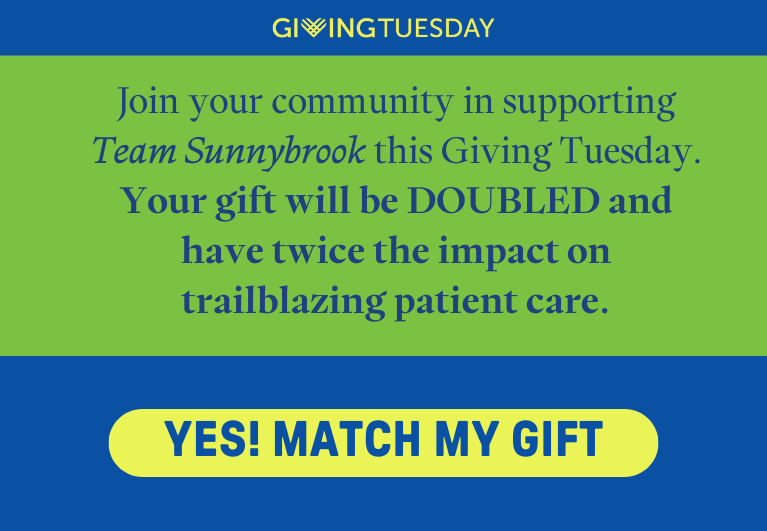Multi-disciplinary team works to dramatically reduce surgical site infection rates
A team of Sunnybrook nurses, surgeons, anesthesiologists, pharmacists and infection control staff are working together to continue to reduce the hospital’s surgical site infection rate, sparing many patients the grief and pain of a post-operative infection and saving the healthcare system thousands of dollars a year.
Dr. Claude Laflamme, Director, cardio-vascular anesthesia at Sunnybrook, is known across the country for his work in reducing the rate of surgical site infections (SSIs). After working with a multi-disciplinary team to improve the SSI rate of cardiac surgeries, Dr. Laflamme is now concentrating his efforts on general surgery at Sunnybrook, an initiative that continues to generate favorable results since it began just a few months ago.
From August to December 2006, Sunnybrook’s SSI rate was reduced by an incredible 40 per cent in general surgery and continues to decline, thanks to the efforts of staff in general surgery, infection control, pharmacy and anesthesiology, as well as nurses in wound-care, the OR department, same-day admission, the post anesthesia care unit (PACU) and post-discharge.
Surgical site infections account for 17 per cent of all hospital-acquired infections in North America. Each SSI translates into huge costs, including lengthened hospital stays, delays in chemotherapy treatment for cancer patients and even death in severe cases. Financially, each infection can cost the hospital an additional $400-30,000 with an average cost of $3,500. Most importantly, 60-70 per cent of SSIs are preventable.
The Sunnybrook SSI initiative concentrates its efforts on four key areas: antibiotics, hypothermia, hair removal and glucose control. The area that has contributed the most to the SSI rate decrease at Sunnybrook is that of preventing hypothermia in patients during surgery. Research conducted by Dr. Laflamme showed a 46.4 per cent infection rate in surgical patients who experienced a hypothermic state, compared to only 12 per cent of those who remained normothermic. “We were convinced that this was the area we needed to invest our time in,” says Dr. Laflamme.
Because of the anesthetic, the body is unable to warm itself as well as it does under normal circumstances. A 1-2 degree lower body temperature means there is less oxygen flowing to the open wound and the body is unable to fight infection to its full potential. To prevent this temperature drop, OR staff were advised to use the intraoperative warming blankets whenever possible to keep patients’ body temperatures at a higher level during surgery. Since mid-January, patients have been provided with a warming blanket before the surgery as well, to ensure that the body temperature drop is kept at a minimum.
“The co-leader of this initiative, Shari Moura, an Advanced Practice Nurse in surgical oncology, has been instrumental in the implementation of this group,” says Laflamme. “We have a group of professionals that are committed; they make a motivated team. I’m very confident that we will reduce the SSI rate even more in the following months.”
The entire Sunnybrook SSI initiative is fueled by Safer Healthcare Now (SHN), a campaign launched in April 2005 to promote patient safety in Canadian health facilities. Working under the Canadian Patient Safety Institute (CPSI) umbrella, SHN focuses on six targeted interventions to improve patient care. It challenges Canadian health providers to work at one or more of these interventions by applying evidence already available in medical literature. Sunnybrook is one of the national leaders in the Safer Healthcare Now SSI intervention.
“The point is not to create new information, but instead implement the theories and information that are already at our disposal,” says Dr. Laflamme, who is also Assistant Professor in the department of anesthesia at the University of Toronto. “Reducing the infection rate is something that doesn’t take a lot of financial investment, but a change in behavior; in culture. Communication and leadership are instrumental in this initiative.”
Thanks to funding from Sunnybrook and a CPSI studentship award, Dr. Laflamme is able to push this initiative even further with the help of Ewen Weili Chen, a 4th year undergraduate thesis student in the human biology, psychology and physiology programs at Victoria College, University of Toronto. Chen has been working full-time at the hospital, collecting and analyzing data, helping with research protocol and coordinating staff for the SSI initiative.
“The whole process of preventing infections is like making bread. If you don’t have one ingredient, the whole loaf is ruined,” says Chen.
Dr. Laflamme was asked to present his data at the National SHN meeting, held in Montreal on March 27th and 28th, to motivate other hospital representatives with the success Sunnybrook has experienced so far with this initiative.
PDF / View full media release »







